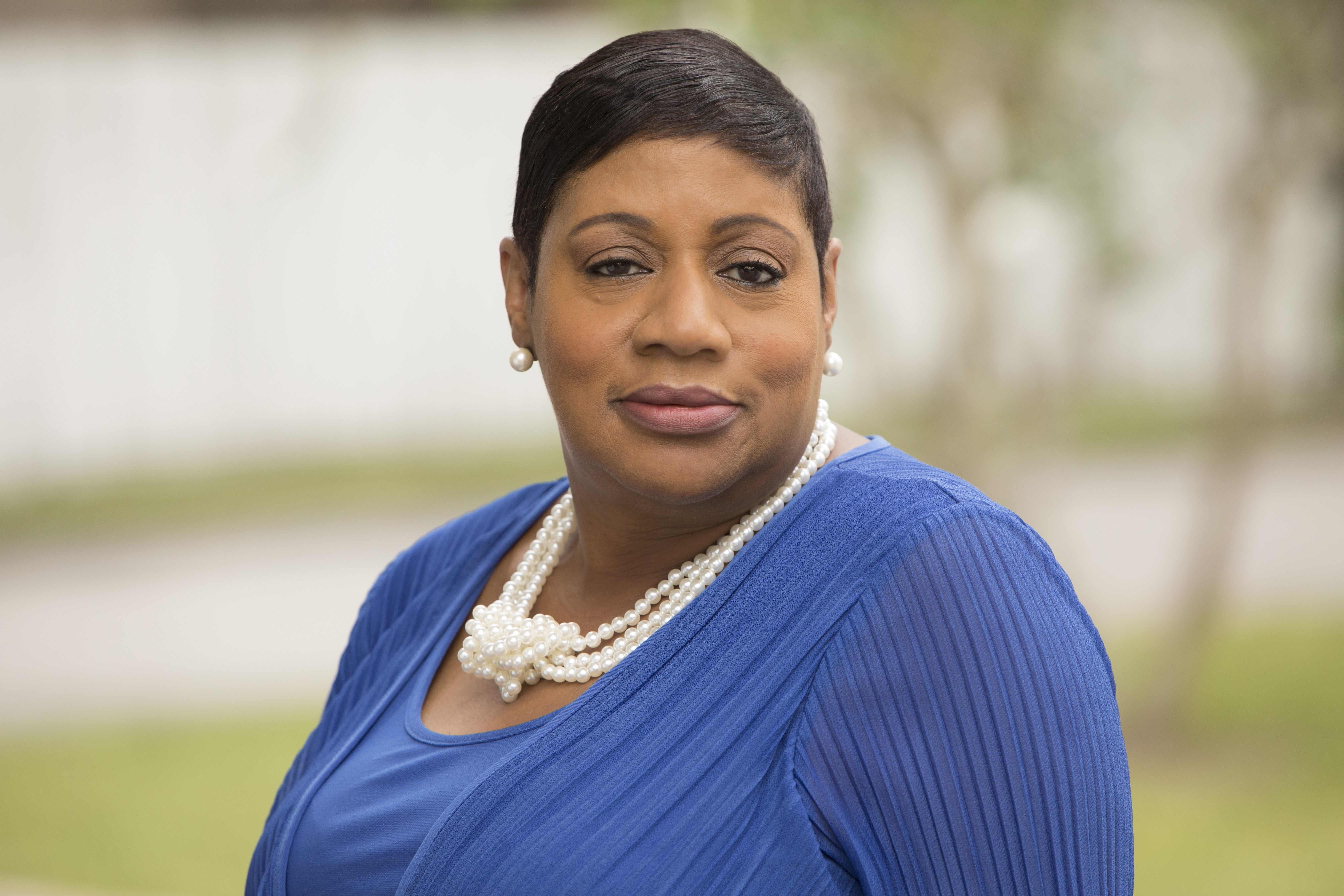
at 8:45 a.m.
When a survivor walks through the door of shelter, she is bruised and battered, often disheartened, and nearly always afraid, but in seven weeks’ time, with the help of her Hubbard House advocate, everything will be different, transformed. How does this partnership between survivor and advocate work? And, how is it that in an average 52-day shelter stay* the survivor can get what she needs to escape the darkness of domestic violence?
Per longtime Victim Advocate Telecia Allen, it all begins with trust.
“When a survivor walks into my office for the first time, still bruised and healing, I know she’s wondering what I think about her, if I accept her. Once we spend a little time together, she knows that I am not judging her. I care for her. And, I will do everything I can to help her reach her goals. Then, things change,” said Telecia. “The relationship becomes real, and she knows she can count on me.”
Every survivor at Hubbard House is assigned a victim advocate, and victim advocates meet regularly with their assigned survivors. During these meetings, advocates inquire about each survivor’s health and healing, and ensure survivors and children are comfortable in the shelter. They also help the survivor-adults to set goals that move them toward their new beginnings. Advocates also provide encouragement, ideas, resources and referrals to facilitate survivor success.
The type of help advocates offer survivors depends on each survivor’s unique goals. For example, Mary, a survivor with permanent mobility issues – a result of abuse-related injuries – and a nine-year-old daughter, needed to apply for disability and secure affordable, handicap-accessible housing. Telecia, her advocate, helped her apply and connected her to the Jacksonville Housing Authority. Today, Mary receives a disability income and lives in an affordable, ground-floor apartment on the Southside, safe with her child.
At about the halfway point, most survivors are making substantial progress toward their goals; for example, if they’re looking for a job or housing, they’ve worked with Hubbard House’s economic justice advocate to create a resume or review housing programs. However, sometimes survivors struggle to overcome barriers. Advocates, experienced problem solvers, are always there, at the ready, to provide help.
“One of my survivors had been evicted from her home as a direct result of the financial abuse she suffered at the hands of her partner,” explained Telecia. “We were able to work together, obtain a hearing and get that eviction removed from her record, so she was able to rent another place.”
Lack of employment history, childcare and transportation are some of the other barriers that survivors often face and victim advocates frequently address, providing the means by which a survivor becomes empowered again.
Some barriers to independence and safety are internal – mental and emotional – and are often a consequence of relationship-related trauma. Post-traumatic Stress Disorder, clinical depression and acute anxiety are among the challenges a survivor may face. Again, the advocate is there to help.
“Trauma-informed counseling and group support are offered to every survivor upon arrival, but the critical need for these services may not be detected immediately,” explained Telecia. “Fortunately, often by the time this type of need appears, the survivor and I have enough of a relationship — trust — and she feels comfortable confiding in me, and I can help her get the help she wants and needs.”
In each phase and as the situation changes, the victim advocate is there to support the survivor. She helps the survivor set goals. She gives referrals to other individuals and organizations with helpful expertise and programs. She helps the survivor find ways around barriers. Ultimately, the reward for both the advocate and the survivor is great.
“As part of the domestic violence experience most survivors have been verbally abused. They’ve been told they can’t make it on their own. But there is a moment, usually when they secure housing, that they realize those words were not true,” explained Telecia. “They’ll say, look what I did! Look what I did on my own! From then on, it’s like watching a butterfly. They take flight. They fly.”
*While the average shelter stay is 7 weeks, the length of stay varies.
—-
Inspired to consider advocacy as a career option? We’re hiring! Positions posted here: www.HubbardHouse.org/careers
In a rough relationship and need to talk to an advocate to receive support and discover options?
24/7 Domestic Violence Hotline, (904) 354-3114; 24/7 Domestic Violence Textline, (904) 210-3698
To meet with an advocate in person, call (904) 400-6300 to schedule an appointment at our Outreach Center, or drop-in 10-4 p.m., M-Friday, excluding holidays: Hubbard House Outreach Center, 6629 Beach Blvd. Jacksonville, FL 32216.
Communication, shelter and services are provided confidentially and at no cost to the survivor. You do not need to stay at the shelter to qualify for many helpful services.
